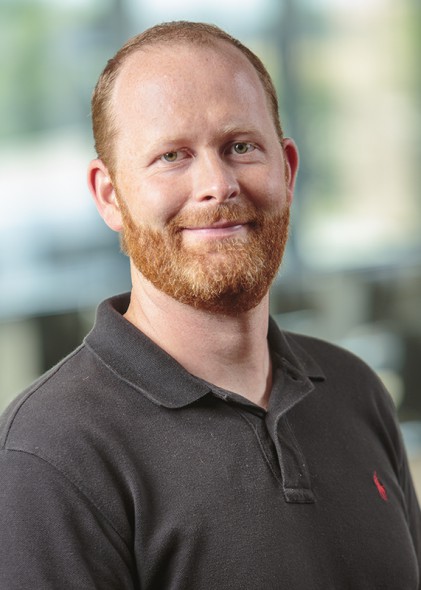UWM researcher helps discover new genetic links for disease risk
Paul Auer worked with scientists from the Wellcome Trust Sanger Institute in Cambridge, England, and other collaborators.
MILWAUKEE_A University of Wisconsin-Milwaukee researcher is a senior co-author of a paper published in the journal Nature Genetics Sept. 26 that identifies 17 rare human genetic variations associated with risk factors for diseases such as heart disease and diabetes.
Paul Auer, an assistant professor of biostatistics in the Joseph J. Zilber School of Public Health, worked with scientists from the Wellcome Trust Sanger Institute in Cambridge, England, and other collaborators. Auer’s work in biostatistics uses mathematics and computers in the fight against diseases, sifting through genetic data for mutations that may help with prevention and treatment.
The study shows how large-scale genomic datasets can be used to help identify potential novel biological targets for studying cardiovascular and other diseases, according to information from the Sanger Institute. Professor Nicole Soranzo of the Sanger Institute is joint senior author.
Genetics have been implicated in cardiovascular and blood diseases for some time, according to the study. However, because these are complex diseases, it is extremely difficult to find specific genetic causes. In this research, scientists studied the genomes of almost 36,000 healthy people with European ancestry, looking for rare genetic links to 20 known risk factors for disease, such as raised levels of cholesterol or hemoglobin in the blood, according to the researchers.
Using data from previous studies, the scientists created a resource called a dense imputation panel, which is freely accessible to the scientific community. The panel holds so much detail that it can fill in the gaps or “impute” data missing from lower resolution genetic studies, according to the scientific paper.
The level of detail that the imputation panel provides enabled the scientists to look at specific disease risk factors, and to find 17 new genetic variants. Of these, 16 would have been extremely difficult to find without the imputation panel data, according to the researchers.
“Our study provides a refined method to use the panel alongside other analysis techniques to find rare variants that contribute to complex genetic conditions like heart disease or diabetes,” said Auer. “We have also narrowed down the number of variants that are potential causes to a smaller set that we can follow up on further.”
While the study focused on traits linked to heart disease, the panel covers the entire human genome, according to Auer. “So it could be used to glean a deeper understanding of genetic contributions to disease in any part of the human body.”
“The dense imputation panel used in this study allowed us to search for genetic variations that are much less frequent than ever before, but that individually explain a greater genetic risk,” said Soranzo. As efforts continue to characterize the genetic underpinnings of complex diseases, the methods we have developed in this study are expected to enable the next wave of discoveries of what causes these diseases, and how we might develop new treatments.”
In addition to Auer and Soranzo, Valentina Iotchkova of the Sanger Institute and the European Bioinformatics Institute was a first author.
NOTE: This press release was submitted to Urban Milwaukee and was not written by an Urban Milwaukee writer. While it is believed to be reliable, Urban Milwaukee does not guarantee its accuracy or completeness.























